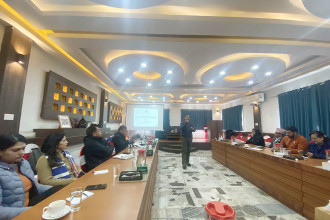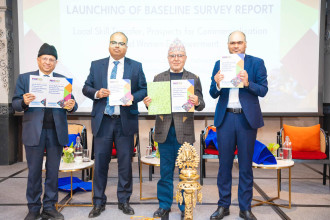
KATHMANDU: The government has initiated a process to provide legal recognition to home-based workers as formal employees. The Ministry of Labour, Employment and Social Security (MoLESS), under Minister Sharat Singh Bhandari, advanced amendments to the Labour Act 2017 to define home-based workers clearly and bring them into the formal labour system.
“It is essential to bring home-based workers from the informal sector into the formal labour system,” said Minister Bhandari, Gorkhapatraonline reported. “Preparations for a legal framework have begun.”
According to MoLESS, the amendments align with International Labour Organization (ILO) Convention 177, to which Nepal is a party. The current Act mentions domestic workers, who perform household tasks, but does not cover home-based workers, who produce goods or services from their own homes.
Domestic and home-based workers are recognised as distinct categories, and the Act will be revised to reflect this legal clarity. The ILO has appointed a consultant to analyse gaps between Convention 177 and the Labour Act 2017. The consultant will submit a report to MoLESS, after which Convention 177 will be presented to parliament for ratification. Once ratified, home-based workers will be formally included in the Act.
Worker groups have long called for clear inclusion in the Labour Act. According to MoLESS, a home-based worker provides goods or services to a company, or trades independently, while working from home.
Once included in the Labour Act, home-based workers will be entitled to the government minimum wage, social security benefits and other services. The ILO convention is seen as a historic milestone for securing labour rights; its implementation is expected to bring dignity, security and social justice to millions of home-based workers, particularly women. The government’s move aims to deliver justice to those who have laboured in the informal sector for years.





